AMPI And First District Partner
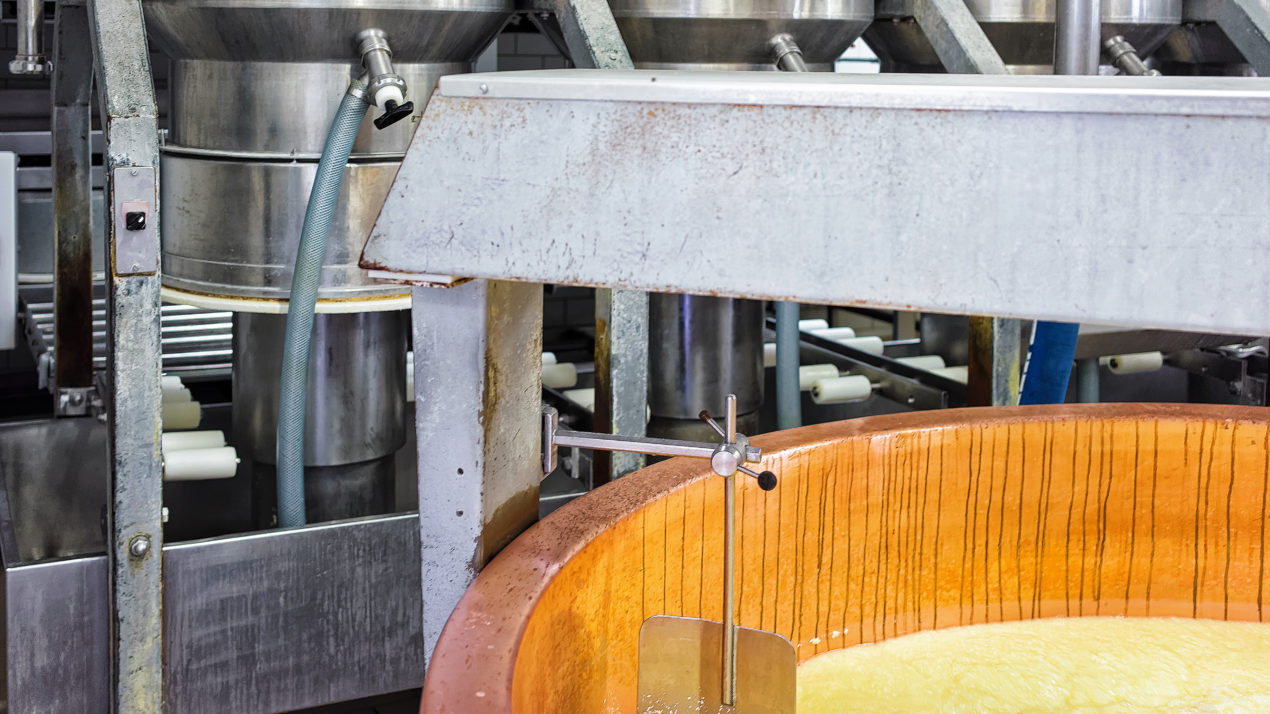
Associated Milk Producers Inc. (AMPI) and First District Association (FDA) announced today the formation of a jointly owned Common Marketing Agency (CMA) of the two Minnesota-based dairy cooperatives.
The CMA will optimize operational and supply chain efficiencies to benefit members and customers. This includes enhanced on-farm services, better utilizing manufacturing capacity and serving domestic and global customers with an expanded dairy product portfolio.
“We see endless opportunities to leverage our dairy farmer-owned assets,” said Josh Barka, chairman of the FDA Board of Directors. “The CMA exemplifies the cooperative principle of cooperation among cooperatives.”
“The CMA is a natural progression for two like-minded cooperatives to better position themselves for long-term strength,” said Steve Schlangen, chairman of the AMPI Board of Directors.
“The strategy of forming CMAs was in use before the Capper-Volstead Act was enacted in 1922,” said Michael Boland, professor of agricultural economics at the University of Minnesota with expertise in cooperatives. “Co-ops in other sectors, such as dairy cattle genetics and sugar beets, have used CMAs to their advantage. It allows cooperatives to coordinate value-added services with each other, while individual cooperative members retain ownership and independence.”
The CMA — known as the American Dairy Cooperative — will be led by a board of directors, comprised of AMPI and FDA members. Together, the CMA members annually produce 7 billion pounds of milk.
Wolf Hunt Closed
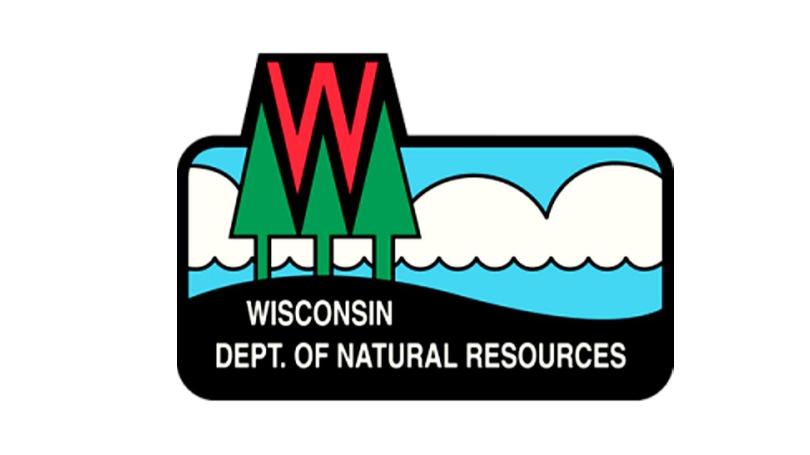
The Wisconsin Department of Natural Resources (DNR) announced that all wolf harvesting zones are now closed to hunting and trapping gray wolves.
Zones 2,5,6 closed at 10 a.m., Wednesday, Feb. 24. Zones 1,3,4 closed at 3 p.m. Wednesday, Feb. 24. Hunting and trapping during the closed season/zone carries a forfeiture amount of $303.30.
State statute authorizes the DNR to close management zones to harvest following a 24-hour notice based on harvest information. Because of the nature of harvest registration and 24-hour notice, it is possible for harvest quotas to be exceeded.
During the Natural Resources Board (NRB) Special Meeting on Feb. 15, the board unanimously voted for a harvest quota of 200 wolves outside reservation lands. Of the approved quota, 119 wolves were allocated to the state, and 81 wolves were allocated to the Ojibwe Tribes in response to the Tribes’ declaration and in accordance with their treaty rights within the Ceded Territory.
The current harvest totals are for state license holders and do not include any tribal harvest numbers. Tribal members register tribal harvest in a separate process and is shared between the state and tribes after the season.
Landmark scholarships invest in the future of agriculture
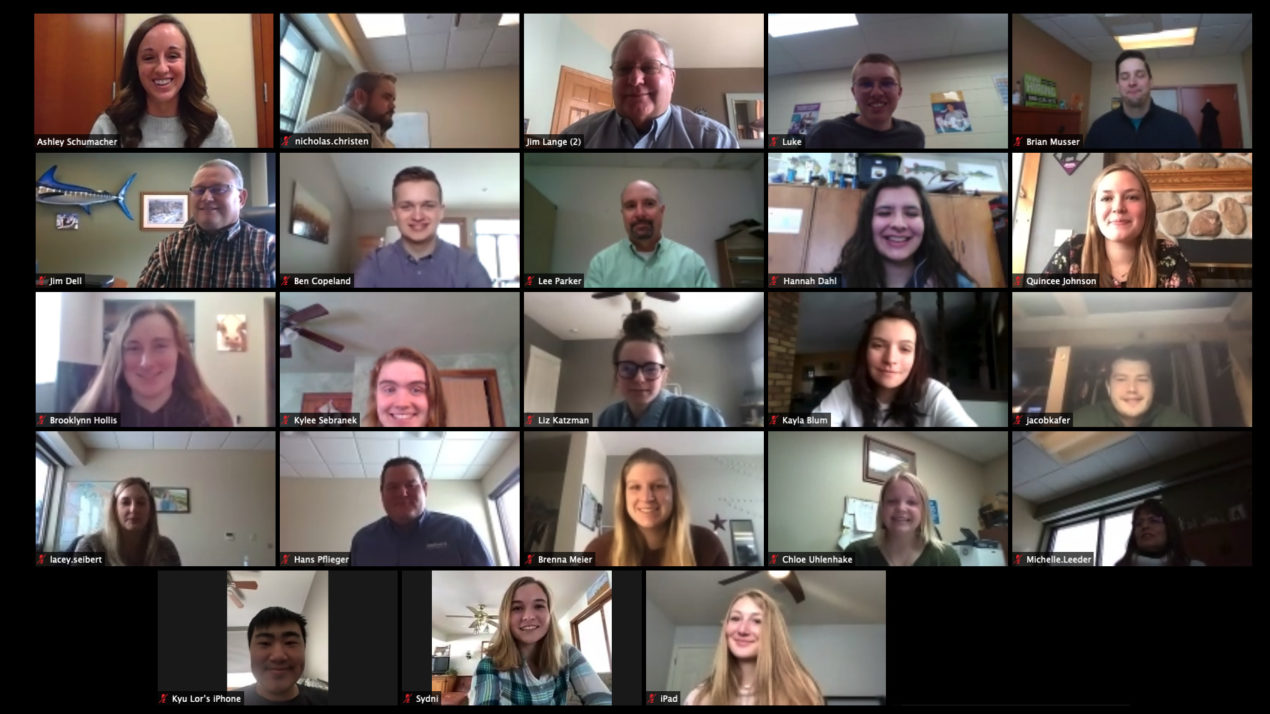
Landmark Services Cooperative is pleased to announce the winners of its annual scholarships. The cooperative recently presented 19 scholarships of $1,000 each to a group of local high school seniors and collegiate students pursuing post-secondary education. Scholarships were awarded during Landmark’s annual scholarship recipient “luncheon” which was held virtually this year due to COVID-19 restrictions. Recipients were able to discuss future goals and aspirations with Landmark staff and board chairman during the reception.
“We are proud to invest in the future of agriculture. It is a pleasure to help students along their academic journey. By awarding scholarships, we are able to set students on a path to success,” emphasized Jim Dell, CEO of Landmark Services Cooperative.
The Landmark scholarship program encourages academic, professional and leadership development. Landmark is delighted to announce the 2020-21 winners:
Cade Austin – Milton, WI, parents Ron & Michelle
Kayla Blum – Polo, IL, parents Matthew & Krista
Benjamin Copeland – Belleville, WI, parents Chris & Amy
Hannah Dahl – Columbus, WI, parents Taylor & Sarah
Julie Fisher – Zion, IL, parent Mike Richards
Brooklynn Hollis – German Valley, IL, parents Todd & Jodi
Bryanna Hunsicker – Sun Prairie, WI, parent William
Quincee Johnson – Evansville, WI, parents David & Rene
Jacob Kafer – Omro, WI, parents Patrick & Stacy
Elizabeth Katzman – Whitewater, WI, parents Wes & Katy
Signe Brooke Kind – Jefferson, WI, parents Jeff & Deb
Katelyn King – Brownsville, WI, parents Janel & Rob
Kyu Lor – Deerfield, WI, parents Mary & Wa
Luke McCullough – Monroe, WI, parents Mark & Amy
Brenna Meier – Belleville, WI, parents Chris & Robert
Sydni Mell – Waunakee, WI, parents Steve Mell & Kay Nelson
Kylee Sebranek – Lone Rock, WI, parents Rob & Denise
Erin Strauss – Lake Mills, WI, parents Bruce & Tammy
Chloe Uhlenhake – Burlington, WI, parents Judy & Ken
Landmark has awarded 380 scholarships totaling $245,850 to date to students since 1989 in support of building a strong future for its members, its communities and the world. “For many years, Landmark Services Cooperative has demonstrated a commitment to investing in the future of agriculture and the communities it serves. Providing scholarships for the children of co-op members is just one of the many ways Landmark delivers on that commitment. This year’s recipients are poised for a bright future. They have excelled not only in academics, but also in their personal and extra-curricular endeavors,” said Jim Lange, Landmark’s board chairman.
Recipients were selected from a pool of applicants based on cumulative grade point average, leadership, scholastic achievement, extracurricular activities, personal motivation and academic and career goals. All members and employees of Landmark Services Cooperative and their children attending four-year universities, two-year technical programs or short courses and high school seniors planning for post-secondary education were eligible to apply for the awards.
###
Landmark Services Cooperative is a member-owned cooperative dedicated to providing customers with the highest quality products and services. For 85+ years, Landmark has provided farm-related products and services to its more than 11,000 members in southern Wisconsin, northern Illinois and eastern Iowa. Employing more than 275 full-time people and with sales in excess of $373 million, Landmark provides a customer service-oriented approach in the communities it serves. For more information, visit landmark.coop, or call 800-236-3276.
Photo caption: Landmark’s CEO, board chair and senior leadership congratulate the scholarship recipients on their achievements.
WCMA to Host Online Contest Celebration March 2 & 3

Join Wisconsin Cheese Makers Association (WCMA) for an online celebration of the World and U.S. Championship Cheese Contests, with free, original programming set to stream on WorldChampionCheese.org next week.
“For more than six decades, the World and U.S. Championship Cheese Contests have raised the bar for excellence in dairy processing, and connected our industry’s brightest, most creative cheesemakers,” said John Umhoefer, Executive Director of WCMA, the Contests’ host organization. “That’s worthy of a celebration, and we invite you join us.”
On Tuesday, March 2, WCMA looks back on the tradition of excellence set by our Contests, and looks forward, with excitement, to what’s next for these competitions. Umhoefer will moderate a lively, insightful conversation with Contest Chief Judge Jim Mueller and Contest Chief Judge Emereti Bill Schlinsog and Bob Aschebrock.
Also on March 2, dive into the minds of cheese judges. Jill Allen of Tillamook Creamery and Craig Gile of Cabot Cheese, veteran judges from World and U.S. competitions, detail the challenges – and joys – of evaluating world-class cheddars. Gurth Pretty of Lakeview Cheese and Chad Galer of Dairy Management Inc., rising stars in the expert judging community, bring new knowledge and laughs, as they walk through cheese curd judging methods. Legendary experts John Jaeggi and Dean Sommer of the Center for Dairy Research venture beneath the smear, to show us their evaluation process for ripened soft cheeses. And valued specialists Mariana Marques de Almeida of Ms. J & Co., also an Assistant Chief Judge, and Dominique Delugeau of Saputo Cheese explain how you can find a gold medal-worthy Manchego.
Then, on Wednesday, March 3, meet ten of the world’s premiere cheesemakers, as WCMA unveils the exciting line-up for the Championship Cheese Auction, set for Wednesday, April 7 at CheeseExpo Global Online.
“We’ve had so much fun reconnecting with our Champions, in preparation for our online Contest celebration, and we know you will, too,” said Kirsten Strohmenger, WCMA Events Manager.
Programs will stream live both days at 3 p.m. (CT), with viewers invited to join in live chat on our World Championship Cheese Contest Facebook page during each broadcast. Programs will also be available to stream on-demand at WorldChampionCheese.org following their original broadcast.
MOSES Organic Farming Conference offers extended content for producers
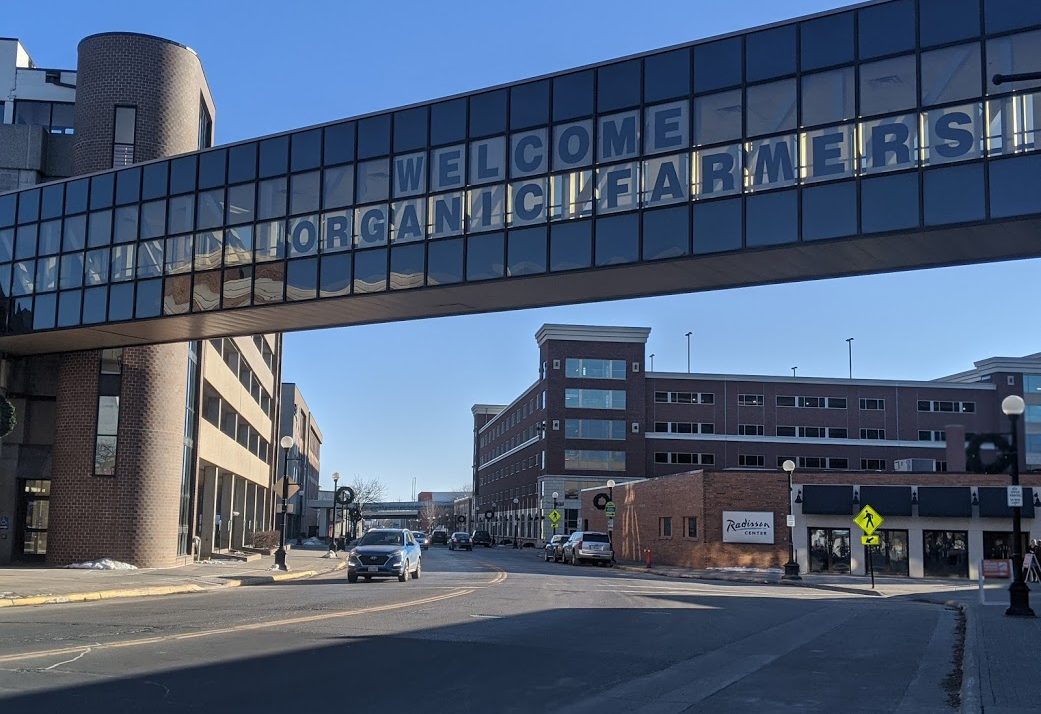
Although the nation’s largest organic farming conference is not happening in person at the La Crosse Center this week, the Midwest Organic & Sustainable Education Service (MOSES) is still engaging with the community.
MOSES and a handful of organizations joined forces to present a six-day virtual conference called the Growing Stronger Collaborative Conference Feb. 22-27. It represents a combination of MOSES, the GrassWorks Grazing Conference, Midwest Organic Pork Conference, OGRAIN Organic Grain Conference, and the FairShare CSA Coalition-University of Wisconsin’s Organic Vegetable Production Conference.
“Just like everybody else, we wish we were on our way to La Crosse,” MOSES Partnership Director Thomas Manley said. “We did have to get creative and consider what our options were to still deliver content and try to recreate that social part of our event.”
Manley said it was an effort to come out of the pandemic strong and continue the work of farmers and advocates. One silver lining is organizers hoped to reach new people who could not physically travel to the La Crosse Center in the past.
“There are a lot of producers on the east and west coast that have never been able to join us because they can’t get on a plane and come to La Crosse in February,” he said. “It is an opportunity to reach new audiences and deliver this content in a completely different way.”
Although the conference itself runs through Feb. 27, anyone interested can register for the event throughout the week and have access to the content for 90 days.
Despite certain advantages of the digital platform, Manley said they fully intend to return to La Crosse in 2022 and take advantage of the newly completed La Crosse Center Expansion project.
“We are excited to have our event grow into that new space,” he said. “We’re hoping this is the last event we have to do like this because it is challenging from a planning and delivery standpoint. It doesn’t satisfy that social component of the event.”
The community may be relieved to see the conference back in person as well as the event usually draws more than 3,500 attendees each year that fill hotel rooms and enjoy local businesses.
“There are places in downtown La Crosse that our attendees look forward to visiting every year,” Manley said. “It becomes a regular thing. Those conversations roll out of the La Crosse Center and into those bars and restaurants. A lot of times, the important work happens in those settings.”
MOSES organizers said they understand the economic toll of local businesses and individuals in the past year because of COVID-19. Plus in a typical year, hundreds of pounds of food from the conference would be donated to local food pantries. That’s why they also partnered with conference sponsor People’s Food Coop for a “Buy a Bag” special in La Crosse and Rochester where shoppers can purchase a $10 bag of groceries that will go to local food shelves. People’s is matching all donations.
“Everybody is suffering this year,” Manley said. “There is just an unprecedented need across the board. There are a lot of people who reached the point of food insecurity. We thought if there is anything we could do this year, let’s try to redirect some of that food support we normally get for our conference to where it is most needed right now.”
That food drive will end Feb. 28. Manley said those who do not live in the area but would still like to participate can donate online.
Both Milk Cows and Production Rise in January
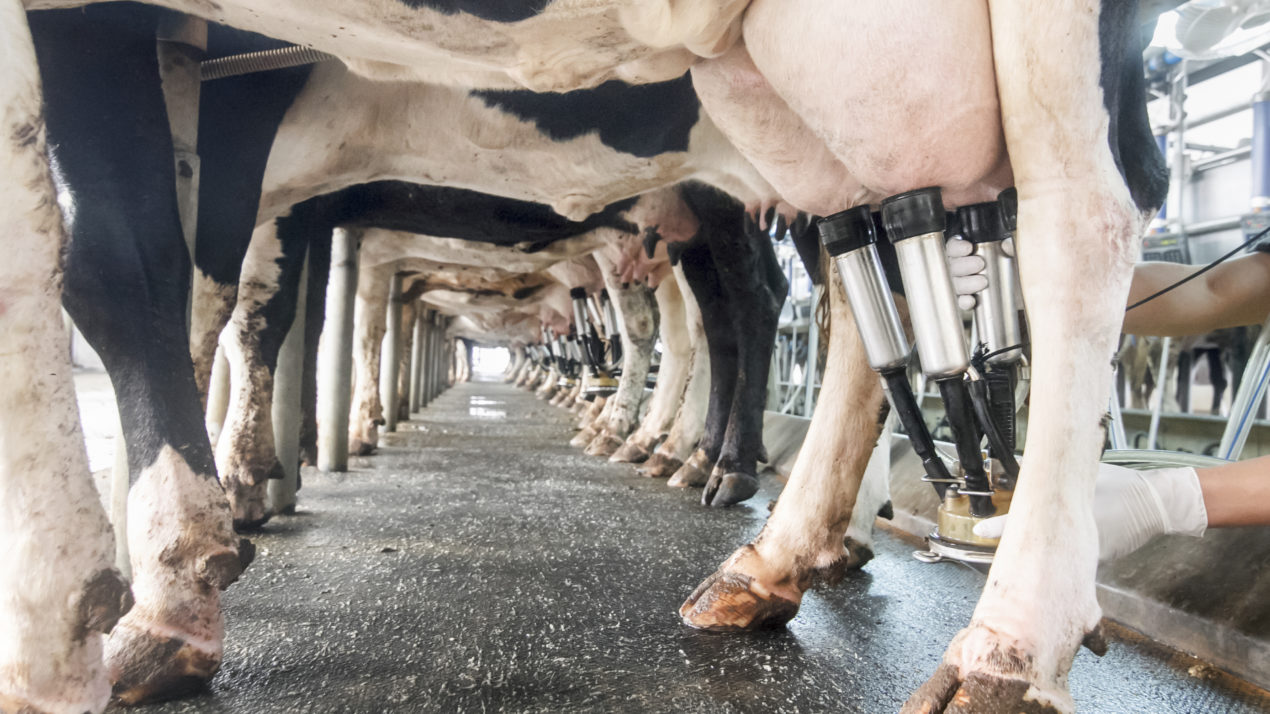
Wisconsin Milk Production
Milk production in Wisconsin during January 2021 totaled 2.66 billion pounds, up 3% from the previous January, according to the latest USDA, National Agricultural Statistics Service – Milk Production report. The average number of milk cows during January, at 1.26 million head, was 2,000 more than both last month and January 2020. Monthly production per cow averaged 2,105 pounds, up 60 pounds from last January.
U.S. Milk Production
Milk production in the 24 major States during January totaled 18.3 billion pounds, up 1.8% from January 2020. December revised production, at 18.0 billion pounds, was up 2.6% from December 2019. The December revision represented a decrease of 74 million pounds or 0.4% from last month’s preliminary production estimate.
Production per cow in the 24 major States averaged 2,049 pounds for January, 15 pounds above January 2020. The number of milk cows on farms in the 24 major States was 8.93 million head, 92,000 head more than January 2020, and 6,000 head more than December 2020.
The annual production of milk for the United States during 2020 was 223 billion pounds, 2.2% above 2019. Revisions to 2019 production increased the annual total 59 million pounds. Revised 2020 production was up 165 million pounds from last month’s publication. Annual total milk production has increased 13.7% from 2011. Production per cow in the United States averaged 23,777 pounds for 2020, 382 pounds above 2019. The average annual rate of milk production per cow has increased 11.5% from 2011.
The average number of milk cows on farms in the United States during 2020 was 9.39 million head, up 0.5% from 2019. The average number of milk cows was revised up 6,000 head for 2020. The average annual number of milk cows has increased 2.1% from 2011.
Iowa FFA student showcases her skills and passion in agriculture fabrication
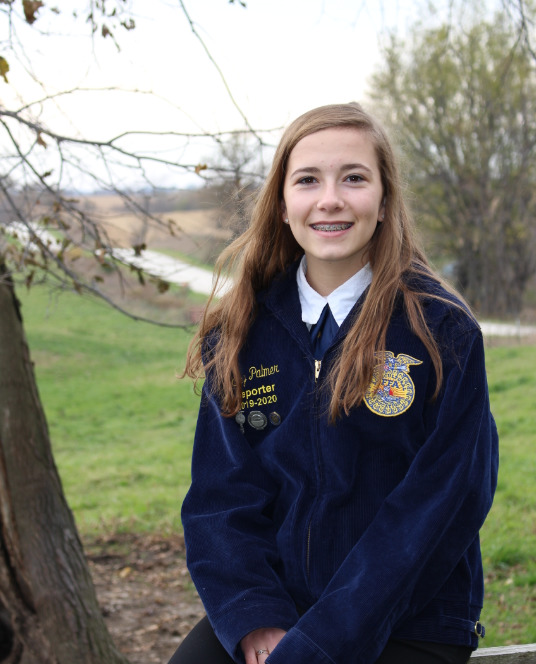
Her goal is to be a good role model for others, and in the process, Carly Palmer is blazing a path of accomplishments for young women interested in FFA.
Palmer is the president of the Little Switzerland FFA Chapter in Waukon, but she did not come from a traditional family farm.
“We live out in the country, and I grew up around my grandpa’s farm, but we own a welding shop outside of Waukon that works on farming machinery,” she said. “I grew up learning how to fix farm equipment.”
She joined FFA four years ago decided to increase her involvement as a junior. Palmer accepted an officer position as the chapter reporter, and from there she joined every group and committee possible.
“I got a little overly involved,” she laughed. “I tried to do any community services that I could. Then I decided to apply for a proficiency award, and later, I became the state champion of the proficiency of agriculture fabrication and design. I did a Star as well, and I became one of the six Star finalists in placement. I also got my Iowa FFA Degree my junior year as well.”
Palmer was one of the only females applying for a proficiency award for fabrication and design.
“That’s a big step for me to be the state champion,” she said. “It is nice to have that female empowerment in that position. I think we definitely need more females in areas like that.”
Although National FFA Week will happen a little differently for The Waukon Little Switzerland FFA Chapter, Palmer said she will continue sharing her story with hopes of inspiring others.
“Agriculture is related to everything in your life,” she said. “It is the food you eat. It is the products you put in your hair. Anything that you do is basically related to agriculture. You don’t have to come from that farm background to be really involved.”
Palmer planned to stay involved even after graduation and keep her Supervised Agriculture Experience (SAE) going so she can receive her National FFA Degree.
The next step in her path of life is to attend Northeast Iowa Community College and double major in agriculture business and agriculture fabrication. She is off to a good start with nearly a quarter of both degrees completed because of high school concurrent classes.
“My hopeful goal is that I will go back to Palmer Repair, our fabrication business, and run the finances of it since I’ve been welding since I was 8-years-old. I’m going to try to do a lot of the bookwork, and if that can’t keep me busy, maybe I’ll open up a restaurant later in my life.”
–Kaitlyn Riley
Buy Local, Buy Wisconsin 2021 Grant Application Now Available
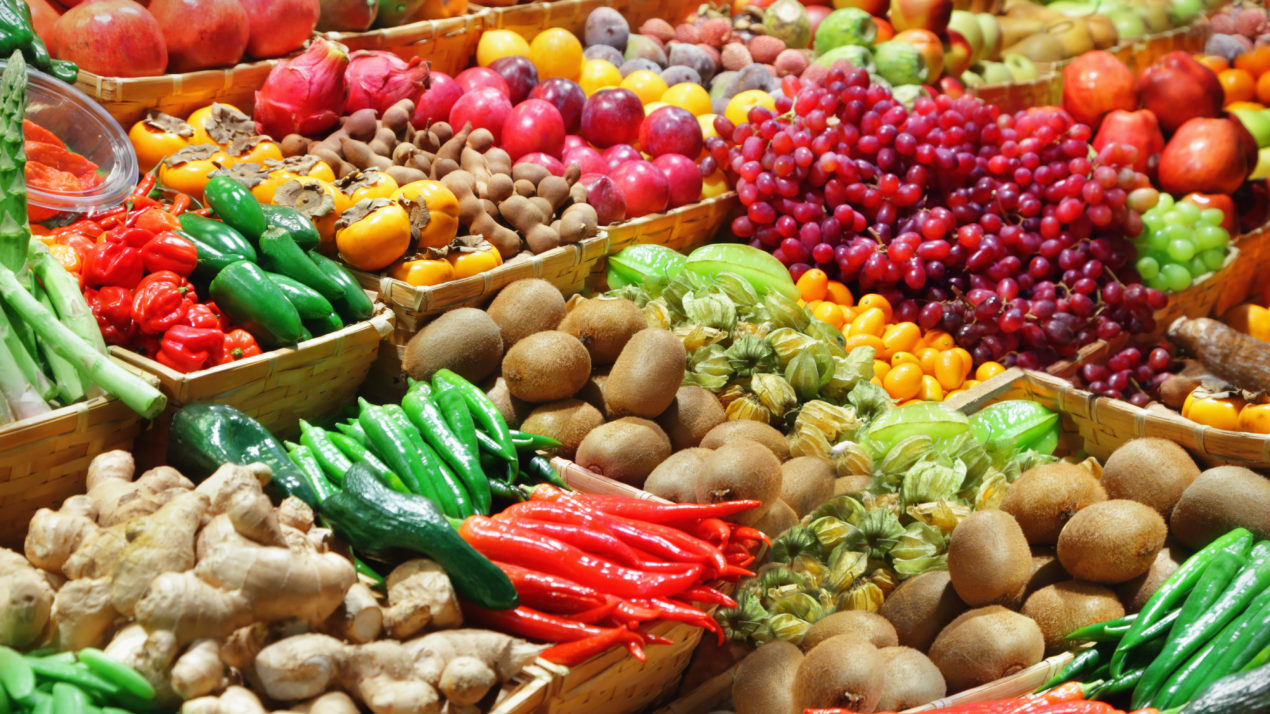
Wisconsin farmers and businesses seeking to grow their presence in local markets are encouraged to apply for Buy Local, Buy Wisconsin producer and processor grants by March 26. The Department of Agriculture, Trade and Consumer Protection (DATCP) will award a total of up to $300,000 in grant funding; requests must be between $5,000 and $50,000.
Proposals must be received by DATCP before 12:00 PM on March 26, 2021. Each proposal must include a cover page, a completed budget template, and a project description. Applications are available online at https://datcp.wi.gov/Pages/BuyLocalBuyWisconsinGrants.aspx.
Grant applications must show a one-to-one match of cash or in-kind support accounting for at least 50 percent of the total project budget. Grants may not be used to fund feasibility studies or startups. Grants will be awarded following a competitive review process. Recipients will be notified of their awards on June 1, 2021.
Qualified applicants include individuals, groups, or businesses involved in Wisconsin production agriculture, food processing, food distribution, food warehousing, retail food establishments, or agricultural tourism operations. Proposals may include collaborations or partnerships.
Applicants with questions can contact DATCP Grants Specialist Ryan Dunn at [email protected] or (608) 590-7239.
About Buy Local, Buy Wisconsin
Since its inception in 2008, over 450 applications have been submitted for Buy Local, Buy Wisconsin grants, requesting a total of $13,578,964 million in funding. Of those applications, 76 projects have been funded, totaling more than $2.1 million. Administered by DATCP, the grants can help farms and businesses more efficiently produce, process, market, and distribute food in local markets including stores, schools, and institutions. Previous grant recipients have generated nearly $10 million in new local food sales, created and retained 211 jobs, and benefited more than 2,700 producers and 2,900 markets.
In his 2021-2023 biennial budget proposal, Governor Tony Evers included an increase in funding for Buy Local, Buy Wisconsin and other programs designed to connect consumers, businesses and schools to local products. The proposal, introduced during the Governor’s biennial budget address, now moves to the legislature for consideration.
Bill Would Allow Emergency Harvest of Cover Crops for Livestock Feed
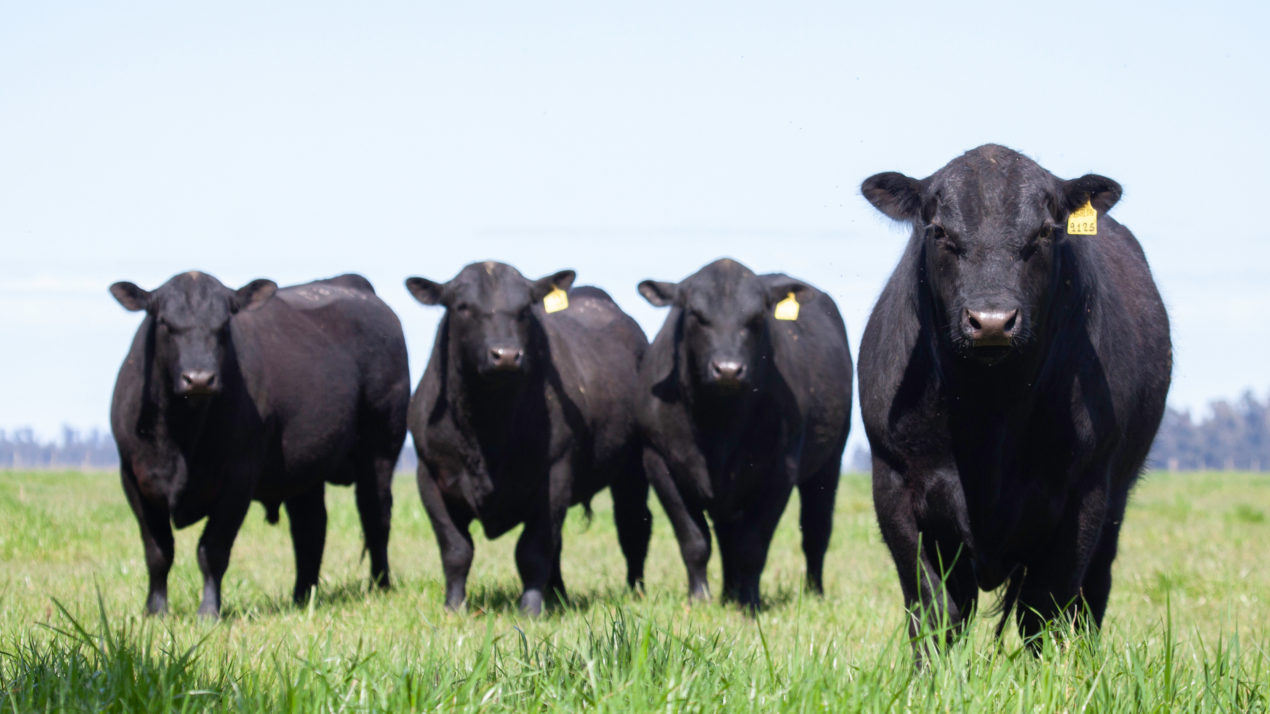
Edge Dairy Farmer Cooperative, one of the largest dairy co-ops in the country, praised the reintroduction today of a federal bill that would allow farmers to harvest cover crops early if extreme weather conditions cause feed shortages for their livestock.
The Feed Emergency Enhancement During Disasters Act (FEEDD Act) was introduced by U.S. Reps. Dusty Johnson, R-S.D., and Angie Craig, D-Minn., and Sens. Tammy Baldwin, D-Wis., and John Hoeven, R-N.D.
The bill would create an emergency waiver authority for the U.S. Department of Agriculture to allow for haying, grazing or chopping of a cover crop before Nov. 1 in the event of a feed shortage due to excessive moisture, flood or drought, without farmers taking a further discount on their crop insurance. The waiver would apply to crops in the USDA’s prevented planting program.
The bill had been introduced in the House in the last Congress, but administrative action taken at that time met farmers’ immediate needs and the legislation was put on the back burner.
“Edge supported the FEEDD Act when it was first introduced during a year when weather conditions were extremely tough for farmers. Fortunately, USDA took steps to address the situation at hand. Now, we are thankful to see Senators Baldwin and Hoeven and Representatives Johnson and Craig pushing forward to cement the agency’s authority to be flexible in extraordinary years,” Edge President Brody Stapel said. “It is essential that dairy farmers are able to adjust so that our animals are taken care of and food production isn’t interrupted.”
Under current rules, farmers cannot utilize cover crops before Nov. 1 if they choose to receive the prevented planting indemnity.
Wisconsin Tree Champions Lauded For Outstanding Community Service

The Wisconsin Urban Forestry Council has announced awards honoring those dedicated to protecting, preserving and increasing the number of trees that line city streets, fill community parks and beautify neighborhoods throughout Wisconsin. The Wisconsin Urban Forestry Council advises the Wisconsin Department of Natural Resources (DNR) Division of Forestry on the management of urban and community forest resources.
“Wisconsin plays a critical role in conservation, especially when it comes to trees,” said Linda Cadotte, Wisconsin Urban Forestry Council award committee chair. “These awards honor individuals, organizations and communities for their hard work and dedication to trees and the benefits they provide. Every year, the awards committee closely reviews the nominations. It’s an honor to learn more about all of the incredible work happening around our state that helps to support healthy community forests.”
This year’s recipients were announced at the 2021 Wisconsin Arborist Association/DNR Urban Forestry Conference, which was held virtually. The categories and winners are:
Distinguished Service
Recognizing an individual for outstanding contributions to urban forestry in Wisconsin.
This year’s honoree, Cindy Kohles, is an exceptional leader in Wisconsin’s urban forestry community and has served with distinction as the Village of Gays Mills volunteer forester for many years. Through her hard work and perseverance and the successful acquisition of multiple DNR urban forestry grants, the village’s tree program has grown under her energetic leadership. Kohles’ dedication and energy are exemplified in all her accomplishments. Her efforts have resulted in the village becoming a leader in small community tree care and regional urban forestry training in southwestern Wisconsin.
The Arbor Day Foundation has also announced that Gays Mills is the country’s smallest community to earn the Tree City USA Growth Award, with a population of 502.
Project Partnership
Recognizing outstanding projects utilizing partnerships to benefit our urban forests.
Restoration Of Our Trees Sheboygan (ROOTS) is a collaborative effort between the Sheboygan Rotary Club and Lakeshore Natural Resource Partnership, created to address emerald ash borer’s (EAB) threat to Sheboygan County’s rich forestry resources. The group was recognized for its effective partnerships with municipalities, businesses, nonprofit organizations and individuals to enhance the area’s urban canopy. This year, ROOTS formed a new grant program for local governments in Sheboygan County to help them manage ash trees beyond putting new trees in the ground and focusing on planning and public awareness. This project has demonstrated that collaboration brings enormous advantages for both the urban forest and its people.
Innovation
Recognizing the creativity, commitment and success of urban forestry efforts.
The Village of DeForest was recognized for its achievement in developing an innovative and effective process for utilizing local urban ash trees removed due to an EAB infestation in the construction of a municipal park building. The urban lumber salvaged from the trees has been used in three unique ways: Interior and exterior trim for the buildings and park picnic tables, enhancing the park’s buildings and recreational areas, and demonstrating their commitment to keep planting and caring for trees so the community can continue to have an urban canopy in the future. This project also serves as an example to other communities on how they can use their local wood resources to benefit their communities. DeForest has demonstrated that local urban wood use is not only possible but affordable and adds tremendous value to the community.
Lifetime Achievement
Recognizing outstanding contributions to urban forestry in Wisconsin demonstrated throughout a lifetime career.
John Neumann was recognized for his leadership in promoting and improving urban forestry, especially within his City of Beaver Dam. For the past 27 years, Neumann has worked to increase and diversify Beaver Dam’s tree canopy. He understands you can accomplish a lot more by leveraging partnerships. His connections with local businesses support Beaver Dam’s forestry program not only financially but with volunteers as well. His knowledge, experience and humble nature have made him the go-to tree expert across Dodge County. His efforts have included outreach and education, creating a city tree nursery, working on Arbor Day celebrations, and establishing a partnership with the local Walmart and Rotary Club to provide funding and volunteers for tree planting events. He always has the interest of trees in mind. His impact will endure, and his work will continue to provide multiple benefits to the residents of Beaver Dam for decades.
Leadership
Recognizing an individual or elected official at the county or local level of government who has made an outstanding recent contribution to urban forestry in Wisconsin.
The Leadership award was presented to Dennis Fermenich, City Forester for the City of Greenfield. Fermenich’s vision and leadership have led Greenfield’s urban forestry program to the next level and played an indispensable role in the city’s positive transformation from “Concrete City” to “Tree City,” even gaining the designation as “Bee City” recently. His wealth of knowledge, collaborative mindset, and generosity in sharing his expertise, passion and dedication have positively impacted the development of a comprehensive community urban forest enjoyed by all residents. Fermenich is creating a legacy that future generations of residents will enjoy.
To learn more, see previous winners and nominate your community tree champion, visit the DNR’s website. The deadline for 2022 nominees is Oct. 30, 2021. However, community tree champions can be nominated at any time.

